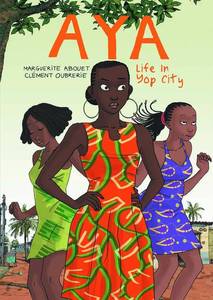 Originally posted at Fledgling: Zetta Elliot's Blog. It is unlikely that anyone who reads comics regularly will be surprised by Zetta Elliott’s answer to the question posed in her January 6, 2014 post, “Do Comics Empower Black Girls?” She’s doubtful, and understandably so, given the hypersexualized objectification of women that dominates superhero comics. Nevertheless, comics can tell deeply rewarding, complex stories about black women that affirm their intelligence, compassion, strength, and beauty on multiple visual and verbal registers. So I come away from the question with a different response, not only as someone who studies race and comics, but also as a black girl who has found much to love in a comic book. Let’s be clear, though, about the term “comics.” Critics often take issue with the depiction of women in superhero titles produced by Marvel (Disney) or DC Comics (Time Warner), but it’s a mistake to equate the superhero genre and its transmedia properties with the entire comics form. This isn’t to say that mainstream superhero comics completely ignore the lives of women of color or refuse to engage contentious social issues. Storm is one of the most well known heroines of any race to wear a cape and a Wakandan princess has held the title of Black Panther. The new Ms. Marvel is Kamala Khan, a Muslim Pakistani-American teenager from New Jersey. Yet one need only look back at Don McGregor’s account of his exchange with Stan Lee over Marvel’s first interracial kiss – or more recently, “Batwomangate” – to get a sense of the effort required to take even small, measured risks in a mainstream superhero comic. But what about fantasy, romance, horror, slice-of-life, and adventure stories? What about small and independent presses or self-published titles? What about comics produced outside the United States? The twenty titles discussed below are just a start, especially now that the comic book publishers are paying more attention to girls and young adult women as marketing demographics. And while not all the comics I cite are created by black women, events like the recent panel on “Black Women in Comics” at the Schomburg Center’s 2nd Annual Black Comic Book Day make clear that black women have long been a part of the industry as avid consumers and creators. The dynamic work of Afua Richardson and C. Spike Trotman, along with this list of over 50 black women comics artists and writers from the Jackie Ormes Society models the kind of creative freedom that can empower any girl who picks up a comic. 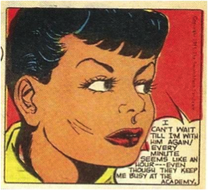 Black Women of the Golden and Silver Age Speaking of Jackie Ormes, much credit is due the first African American woman cartoonist whose comic strips were published in black-owned newspapers such as the Pittsburgh Courier during the 1940 and 1950s. Her comic “Torchy in Heartbeats” follows a single African American woman named Torchy Brown in romance serials that highlight both her sense of adventure and style. On the blog, Sequential Crush, comics scholar Jacque Nodell frequently posts scans of hard-to-find romance comics with black women like the one-shot Dell comic about a fashion photographer named Friday Foster, based on the syndicated comic strip and later turned into a film. Black women featured in their own series title are much harder to come by in the 1970s, but it’s not uncommon to find guest appearances by novelty characters like Wonder Woman’s black twin sister, Nubia or a black Spider Woman. Questing Heroines and All-Ages Comics For younger readers today, Princeless by Jeremy Whitley and M. Godwin is fantastic. At the center of the comic is a princess with brown skin, thick tangled hair, and a great sense of humor who gets sick of waiting in the locked tower for a prince. She befriends the dragon, grabs a sword and armor, and decides to rescue herself and her sisters. (Side note: this is my 7-year-old daughter’s favorite comic!) Other titles with strong female protagonists that may appeal to black girls include Molly Danger by Jamal Ingle, Juan Castro, Romulo Farjardo, The Many Adventures of Miranda Mercury by Brandon Thomas and Lee Ferguson, and Bayou by Jeremy Love (which I've written about here and here). And of course, even a list as short as this one should make room for ponies that empower, not to mention the characters and stories that girls create on their own. Race, Sexuality, and Coming of Age Jennifer Cruté is a self-published African American cartoonist whose reflects upon her own childhood and adolescence during the 1970s and 1980s in Jennifer’s Journal: The Life of a SubUrban Girl. Cruté takes an approach familiar to readers of The Boondocks in the way she uses cartoon images of herself and her family to explore mature issues. But as I've discussed here, her observations about race, sex, religion, and class push against limiting assumptions about the comics form in representing black women's experiences. Another incredible series is Wet Moon by Ross Campbell. The comic, as the intro to this review by Sarah Horrocks describes it, is about “variously gothic and geeky and gay girls (and some boys) attending art college in the American south.” While the story features at least two prominent African American characters, its frank considerations of body image and exploration of queer, racialized, and disabled bodies is a startling and rare pleasure. Challenging traditional gender roles is also critical to the French comic series, Aya, by Marguerite Abouet and Clement Oubrerie, which takes place during the 1970s in Cote d’Ivoire. The story unfolds like a soap opera among the young West African women and their families during their country’s unprecedented period of modern wealth and promise. Don’t miss the appendix in the two thick English-translated volumes with additional background on the clothing, food, and language among the Ivorians. An animated film version of Aya was even released in France in 2013. 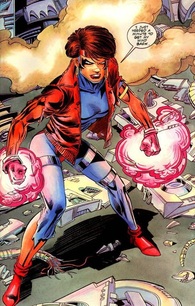 Women of Action And finally, what about those superheroes? Looking back to the 1990s, the mini-series, Martha Washington, by Frank Miller and David Gibbons is a favorite of my friend Grace Gipson who is researching black comics and popular culture at UC Berkley. In her interview with Huffington Post, “Black, Female, and Superpowered,” she explains: Visually, Washington challenges the typical comic book hero image. Martha Washington is not your classic privileged superhero -- she actually humanizes the superhero experience by being a "regular" African-American woman who ultimately becomes a hero. Writer Dwayne McDuffie had similar motives when he created a 15-year-old black female sidekick named Rocket for his signature superhero in the Milestone Comic, Icon. Despite Rocket’s secondary role, the voice of this teenage mother who wants to be a writer like Toni Morrison establishes the guiding vision for the comic as she learns how to negotiate her newly acquired powers with the social realities around her. (McDuffie also devoted more attention to the black superhero Vixen in his run on Justice League of America.) Other women of action can be found in the multi-racial cast of Marvel’s Runaways; Dark Horse’s Concrete Park created by Erika Alexander, Tony Puryear, and Robert Alexander; independent comics like Ajala: A Series of Adventures by N. Steven Harris and Robert Garrett; and popular series where black women emerge as strong secondary characters like Michonne from The Walking Dead and Agent 355 in Y The Last Man. Have you read any of these comics? Know of others that I’ve overlooked? Please share titles and links in the comments. And a very special thanks to John Jennings, Grace Gipson, Julian Chambliss, Ebony Elizabeth Thomas, and Breshaun Joyner for their assistance with this piece. Comments are closed.
|
AboutAn archive of my online writing on comics, literature, and culture. (Illustration above by Seth!) Categories
All
Archives
July 2020
|
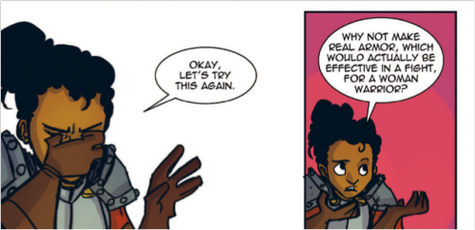
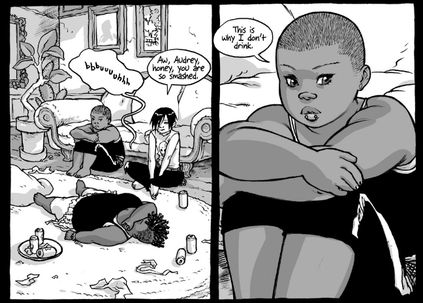
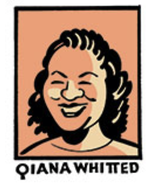
 RSS Feed
RSS Feed